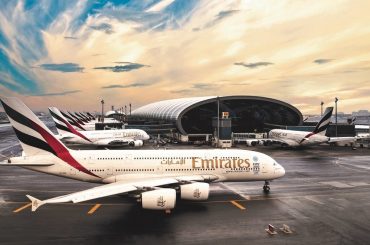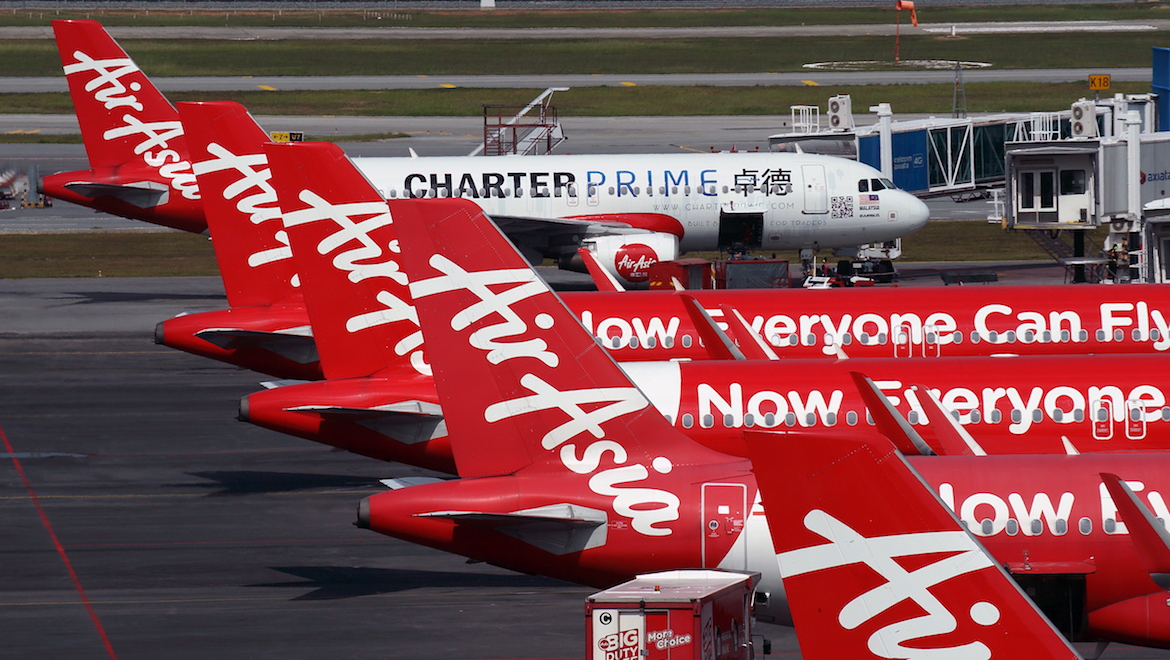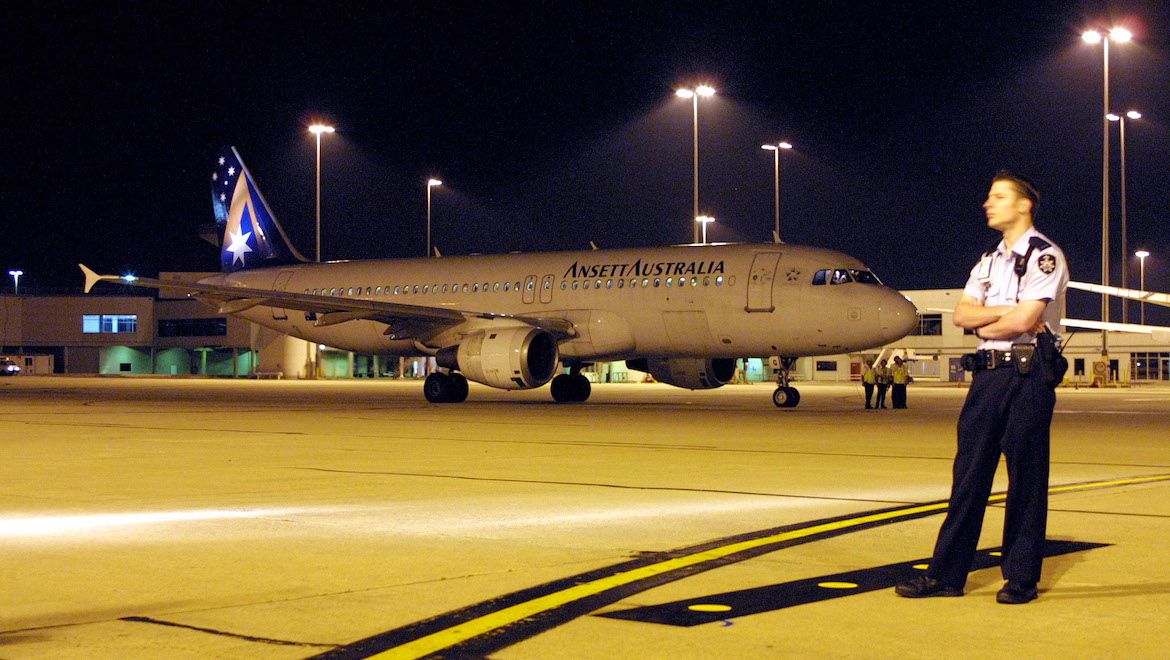Airlines should maintain some flights to China, but also make quick changes, airline founder advises
As China begins to criticize international travel and tourism action in response to the coronavirus outbreak, one airline founder advises airlines to consider their long-term goals in China and not completely cut all flights to the country.
“I would continue. Maybe I cut down on the amount of volume but I would still keep one or two to keep going. I would fly,” Nok Air co-founder and CEO Patee Sarasin said at the Singapore Airshow.
“It’s for long-term purposes. It’s not going to last forever. They understand if you cut some.”
While Sarasin said flying would depend on demand, he would not necessarily cut a flight that would definitely be loss-making. “We would be talking with the CAAC very closely about what we should do, and get their advice,” he said.
Sarasin noted flying to China is not a business transaction but broader with inherent relations between the company and China, as well as the foreign government and China.
Nok’s initial charter flights to China started relations that resulted in enviable tourism demand.
“I think it was political as well, to build better relations between Thailand and China, that’s how I felt. And hence Thailand became the number one destination for the Chinese. We’re the first line for tourism,” he said.
Sarasin has just published a snappy memoir of his time in aviation, “Smiling Through Turbulence.”
That includes Nok launching shortly before the 2004 tsunami that devastated Thailand. Subsequent external shocks – political and natural – shape Sarasin’s view of crisis management, even if the crises are different from each other.
“When you talk tsunami, there’s an ending part. The waves are gone,” he said.
“What we don’t see is ‘What about this virus?’ We don’t really know. We only predict when it will end.”
The crises did not instil Sarasin with a sense to make changes faster, but instead to have more plans and for a longer period of time. “We do it on the spur of the moment when we have to, but the planning is before. Execution is on the day,” he said of his time at Nok.
“We were a very flat organization and highly flexible. We take the formalities out.”
Large airlines are not responding fast enough, Sarasin reckons. “It’s just sheer size. The big airlines, it’s difficult to change. The Thai airways, the legacies, Malaysia I’m sure, even SIA – it’s going to be hard to respond quickly,” he said.
Airlines have mostly made changes to their China flying through March and may be evaluating subsequent weeks. Sarasin advises going further. “Plan A is short, March/April,” he said. “June, July, August, Septmebr if it ever goes that far – I would start planning, diversify the market.”
Sarasin eventually found Nok’s agility limited. “What do we have to do? One, two, three, execute. I was very quick in terms of decision making until we became a public company,” he said, expecting a similar outcome for airlines in the current coronoavirus-caused downturn.
“All these audit committees, exec committees, it takes forever,” he lamented. “All these things are hampering flexibility. I think most of the airlines, if they are public, they will go through this hell,” he said.
That is not a caution against an IPO, but a warning that requires the founders to change, even leave – perhaps a reflection of his own time at Nok. “I would not quickly recommend a new airline to go public,” he said. “The CEOs building the brand, the minute you become public, you retire. Get the corporate guys to do it.”
Nok Air founder helping Thai aviation diversify from Chinese tourists in wake of coronavirus outbreak
With the coronavirus outbreak in China prompting large, global cuts in international flights, there is increased awareness of how dependent countries have become on Chinese tourists and the risk this poses. Thailand last year received 11 million Chinese visitors, comprising 28% of its total visitor arrivals.
Former Nok Air co-founder and CEO Patee Sarasin is working with aviation and tourism companies to use this downturn to finally diversify tourism beyond leisure Chinese tourists. That will help airlines develop more travel propositions than commoditized flight seats.
“The current travel platforms are totally red ocean, a lot of price wars going on. Nobody’s going to be making money if it continues this way,” Sarasin said at the Singapore Airshow.
Particularly exposed are widebody aircraft at Thai AirAsia X and NokScoot that used to fly to China.
Sarasin said he will attend a Thai aviation delegation to Moscow in March to examine opportunities to redeploy widebodies and establish new long-term markets. “I’m helping other airlines expand beyond China,” Sarasin said.
There is interest in Eastern Europe from some of Asia’s new airlines, including Vietnam’s Bamboo Airways planning a flight to Prague while AirAsia co-founder Tony Fernanades has said he is also interested in Prague.
Sarasin is less interested in Eastern Europe. “It’s a little too far. I would talk about Tashkent, Almaty, Saint Petersburg, Moscow,” he said.
Elsewhere in the world, he points to Kuala Lumpur-based AirAsia X using fifth freedom flights to open new markets. “They do fly from Osaka to Hawaii, maybe there’s a new market as well for Thais,” Sarasin said. “You have to spread your eggs everywhere.”
The current downturn is unprecedented but individual countries over the years have seen downturns in Chinese tourism that impact the economy.
Before the coronavirus outbreak, Thailand was trying to rebound after a high-profile boat accident killed 40 Chinese tourists. In response, Chinese visitor numbers sharply decreased. Japan, Vietnam and other markets have seen downturns in Chinese visitors due to political spats.
Besides growing links with other countries, Sarasin also wants Thailand to diversify its type of Chinese visitors. Thailand has already cut down on so-called “zero-dollar tourism” that brings little economic benefit to Thailand as tour group money spent in-country is largely repatriated.
Before the coronavirus outbreak, Sarasin’s new company Really Really Cool planned to launch a medical tourism program this month that aimed to attract 40,000 people annually to Thailand just from around Shanghai. The plan is on hold, but Sarasin is still committed, and wants to later expand it to other major Chinese cities.
Really Really Cool partnered with Thailand’s largest private healthcare group, Bangkok Dusit Medical Services. Also involved is the Bangkok Wellness Center, whose preventive wellness measures may gain awareness in light of the coronavirus outbreak. For the travel component, Sarasin is working with Thai airlines and is open to collaborating with Chinese airlines.
“I’m trying to help the yields on these airlines to survive. You can help these airlines make money for a change,” he said.
Sarasin is working with Thailand’s Ministry of Foreign Affairs to expand visa access for Chinese by having a multi-entry visa for medical purposes and higher-income independent travellers.
This could begin to help “kill the seasonality out” of Chinese tourism, Sarasin said.
Greater medical tourism will facilitate Thailand growing its health industry whereas most Chinese tourism currently benefits hotels and malls. Volume increases in visitors are uncertain as Bangkok is already strained. Some locals avoid malls or entire areas because they are too touristy. Medical tourists can bring greater economic value.
“That’s according to the Thai strategy,” Sarasin said. “Rather than bring the high volumes in of the tourist groups, they’re progressing more to FIT.”












